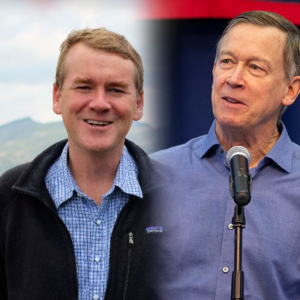
CO-04 (Special Election)
See Full Big Line
(R) Greg Lopez
(R) Trisha Calvarese
90%
10%

President (To Win Colorado)
See Full Big Line
(D) Joe Biden*
(R) Donald Trump
80%
20%↓

CO-01 (Denver)
See Full Big Line
(D) Diana DeGette*
90%

CO-02 (Boulder-ish)
See Full Big Line
(D) Joe Neguse*
90%

CO-03 (West & Southern CO)
See Full Big Line
(D) Adam Frisch
(R) Jeff Hurd
(R) Ron Hanks
40%
30%
20%

CO-04 (Northeast-ish Colorado)
See Full Big Line
(R) Lauren Boebert
(R) Deborah Flora
(R) J. Sonnenberg
30%↑
15%↑
10%↓

CO-05 (Colorado Springs)
See Full Big Line
(R) Dave Williams
(R) Jeff Crank
50%↓
50%↑

CO-06 (Aurora)
See Full Big Line
(D) Jason Crow*
90%

CO-07 (Jefferson County)
See Full Big Line
(D) Brittany Pettersen
85%↑

CO-08 (Northern Colo.)
See Full Big Line
(D) Yadira Caraveo
(R) Gabe Evans
(R) Janak Joshi
60%↑
35%↓
30%↑

State Senate Majority
See Full Big Line
DEMOCRATS
REPUBLICANS
80%
20%

State House Majority
See Full Big Line
DEMOCRATS
REPUBLICANS
95%
5%
 August 28, 2019 10:45 AM UTC
August 28, 2019 10:45 AM UTC 11 Comments
11 Comments
I predict he will run for Senator.
Biden shared with a group of African-American reporters yesterday that his preference for a running mate will be a 'person of color' and/or a ‘different gender'.
Agree that Michael would make a terrific CabSec.
But do we not have it on good authority by someone who used to post on here that Michael's career path is to be a Senator-For-Life?
I've wondered whether he blew a fuse and left us or is just lurking these days?
Well, at least he last a week or two more than Hick…. Then again, Mikey ran a better presidential campaign than Hick.
No stories about movie choices for his family. No confusion about whether he's willing to describe himself as a capitalist. No PAC with Giddy Up in the title.
Gillibrand's out — so he won't be the first Senator to drop. Small victory there, I guess.
That will give Al Franken his schadenfreude moment.
Just not Secretary of Education (ducks)
I'd wager he's in for a place on the short list, even serious consideration, for the VP slot on a Warren or Harris ticket – especially Warren to balance ideology and geography. Probably in for a cabinet slot for the other top-tier should they get the nominations.
wayyy too soon to know.
But if he wanted, I'd like to see him at Interior or EPA
I'd like to see him at USDA (he's on the Senate Ag Committee). Colorado has several great examples he can tout of how we transition into a 21st century economy with new crops (hemp); small farms, large farms, surface water rights, renewable energy, aquifer battles, animal agriculture and one of the best land grant universities in the nation: CSU. It was his leadership in December, '13 that got the original hemp language (passed first through the House thanks to Polis) through conference and into the final bill. Ever hemp grower in the US can thank Michael for his support and vision.